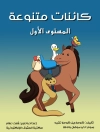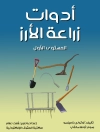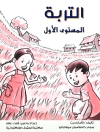Wild Apples Henry David Thoreau – Wild Apples is a compilation of two classic philosophical nature essays by the great American naturalist and philosopher, Henry David Thoreau. I wish to speak a word for Nature, for absolute freedom and wildness, as contrasted with a freedom and culture merely civil–to regard man as an inhabitant, or a part and parcel of Nature, rather than a member of society. I wish to make an extreme statement, if so I may make an emphatic one, for there are enough champions of civilization: the minister and the school committee and every one of you will take care of that. Walking, or sometimes referred to as ‘The Wild’, is a lecture by Henry David Thoreau first delivered at the Concord Lyceum on April 23, 1851. It was written between 1851 and 1860, but parts were extracted from his earlier journals. Thoreau read the piece a total of ten times, more than any other of his lectures. ‘Walking’ was first published as an essay in the Atlantic Monthly after his death in 1862.[1] He considered it one of his seminal works, so much so, that he once wrote of the lecture, ‘I regard this as a sort of introduction to all that I may write hereafter.’ Walking is a Transcendental essay in which Thoreau talks about the importance of nature to mankind, and how people cannot survive without nature, physically, mentally, and spiritually, yet we seem to be spending more and more time entrenched by society. For Thoreau walking is a self-reflective spiritual act that occurs only when you are away from society, that allows you to learn about who you are, and find other aspects of yourself that have been chipped away by society. ‘Walking’ is an important canon in the transcendental movement that would lay the foundation for his best known work, Walden. Along with Ralph Waldo Emerson’s Nature, and George Perkins Marsh’s Man and Nature, it has become one of the most important essays in the Transcendentalist movement. ‘Walking’ The main theme is Nature. Thoreau is looking at nature, and how nature brings self-reflection through the act of walking, how nature represents the wild natural aspect to man that has been suppressed by society, and criticizing society and people who think society is everything, and lastly Thoreau is trying to push us towards exploration particularity in the west, because at the a time the United States was living under the idea of Manifest destiny that promised westward expansion to fulfill a duty to cultivate and civilize land, however, for Thoreau the west represents a different kind of future with new opportunities.
عن المؤلف
Henry David Thoreau (born David Henry Thoreau) was an American author, naturalist, transcendentalist, tax resister, development critic, philosopher, and abolitionist who is best known for Walden, a reflection upon simple living in natural surroundings, and his essay, Civil Disobedience, an argument for individual resistance to civil government in moral opposition to an unjust state.
Thoreau’s books, articles, essays, journals, and poetry total over 20 volumes. Among his lasting contributions were his writings on natural history and philosophy, where he anticipated the methods and findings of ecology and environmental history, two sources of modern day environmentalism.
In 1817, Henry David Thoreau was born in Massachusetts. He graduated from Harvard University in 1837, taught briefly, then turned to writing and lecturing. Becoming a Transcendentalist and good friend of Emerson, Thoreau lived the life of simplicity he advocated in his writings. His two-year experience in a hut in Walden, on land owned by Emerson, resulted in the classic, Walden: Life in the Woods (1854). During his sojourn there, Thoreau refused to pay a poll tax in protest of slavery and the Mexican war, for which he was jailed overnight. His activist convictions were expressed in the groundbreaking On the Duty of Civil Disobedience (1849). In a diary he noted his disapproval of attempts to convert the Algonquins ‘from their own superstitions to new ones.’ In a journal he noted dryly that it is appropriate for a church to be the ugliest building in a village, ‘because it is the one in which human nature stoops to the lowest and is the most disgraced.’ (Cited by James A. Haught in 2000 Years of Disbelief.) When Parker Pillsbury sought to talk about religion with Thoreau as he was dying from tuberculosis, Thoreau replied: ‘One world at a time.’
Thoreau’s philosophy of nonviolent resistance influenced the political thoughts and actions of such later figures as Leo Tolstoy, Mohandas K. Gandhi, and Martin Luther King, Jr. D. 1862.












